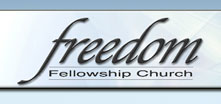

Homiletics - The Art of Preaching - Lesson 03
by Dr. Ray Self
Preparing Your Sermon
Click the play button to begin video lesson and follow along with the class notes below the video window. When you complete this video, click the "Lesson Assignment" button at the bottom of this page to open the lesson assignment.
Remember the message you bring is vital to the hearers.
Preparation means spending time with the author of the message.
Preparation From a Text
Is the text figurative or literal?
Understand the meaning of words in their context.
Sometimes the writer himself will explain the word. For instance, see "faith" in Hebrews 11 and the word "perfect" in the following scriptures:
- Psalms 37:37 Mark the perfect man, and behold the upright: for the end of that man is peace.
- 1Chronicles 12:38 All these men of war, that could keep rank, came with a perfect heart to Hebron, to make David king over all Israel: and all the rest also of Israel were of one heart to make David king.
- 1Corinthians 2:6 Howbeit we speak wisdom among them that are perfect: yet not the wisdom of this world, nor of the princes of this world, that come to nought:
- Philippians 3:15 Let us therefore, as many as be perfect, be thus minded: and if in any thing ye be otherwise minded, God shall reveal even this unto you.
- James 1:4 But let patience have her perfect work, that ye may be perfect and entire, wanting nothing.
Understand the circumstance in which the text was written.
Compare scripture with scripture.
Seek to understand the manners and customs of the people to whom the Bible was originally written.
Sources for Interpretation
- The text itself
- The context of the text
- Parallel passages
- Resources other than the text — Look at what others say about the text (i.e. commentaries, etc.)
Theme
- Know the theme of the text thoroughly.
- Make sure the theme is one that listeners can understand.
- The theme should never be trivial.
- There should be a purpose in mind for the treatment of the theme.
- Do not choose a theme that you do not like, have not experienced, or are not living.
- The theme should be appropriate to the time, place, and occasion.
Gathering Material
A builder has his material on hand before he builds a home.
- What have you previously read or studied on the subject?
- What have you observed that can throw light on the subject?
- What have you ever thought on the subject? Practice taking notes of your daily thoughts.
- What have you gathered on the subject? What has the Spirit of God revealed to you?
Study Questions:
- Explain the difference between literal and figurative scriptures.
- Why is the context of the scripture important for proper interpretation?
- Why is the theme of the scripture important for sermon preparation?
- Discuss the most effective ways for you to gather material for your sermon.






